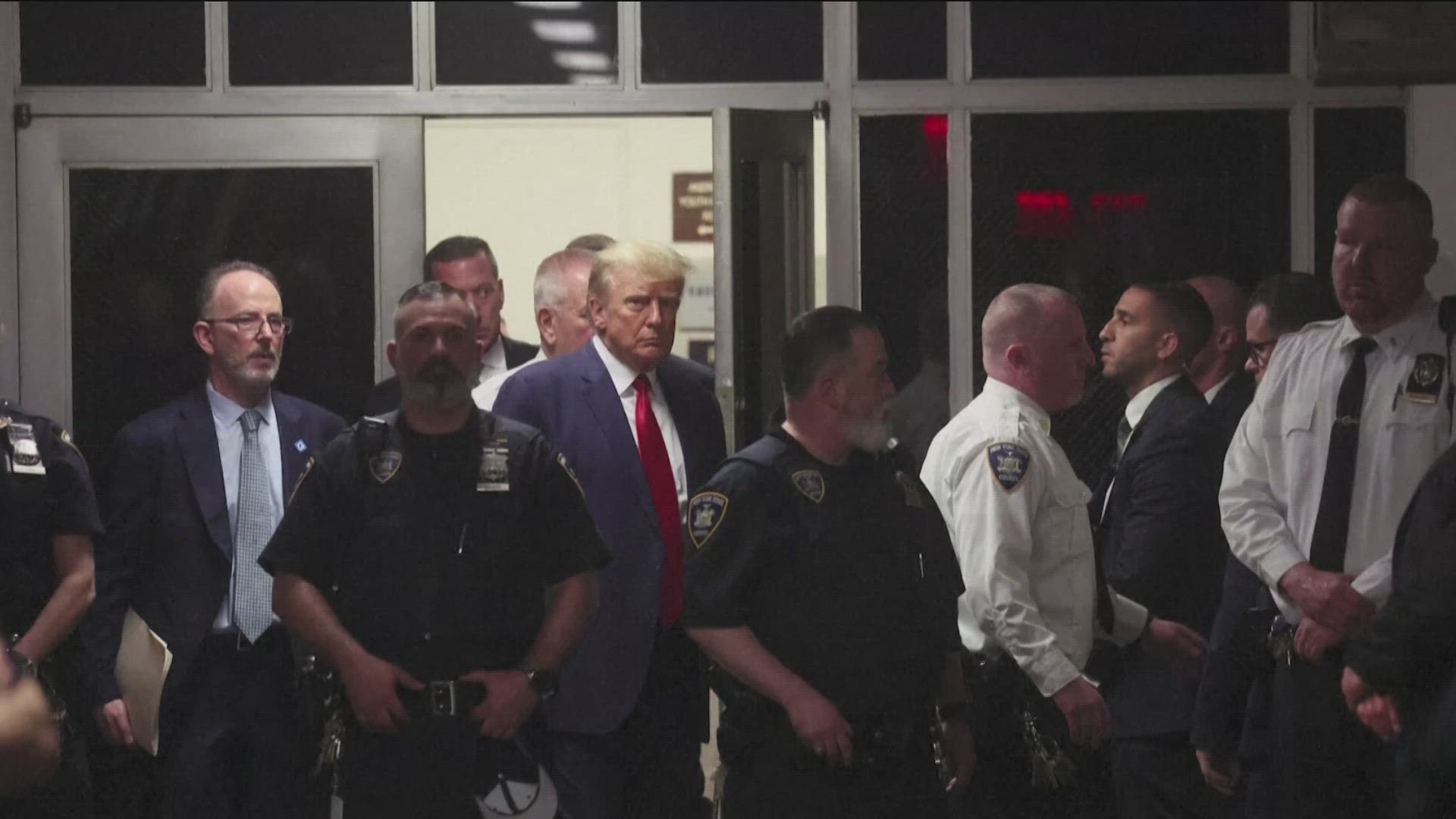TOLEDO, Ohio — Former president Donald Trump on Tuesday became the first former president to be charged with a crime as he was arraigned on 34 counts of falsifying business records and pleaded not guilty in a Manhattan courthouse.
Two prevailing narratives of what the historic indictment means have become increasingly prominent throughout the investigation into payments made during his 2016 presidential campaign to silence claims of extramarital sexual encounters, followed by a New York grand jury's indictment of him on March 31. Democrats in opposition to Trump say it's an important first step in holding powerful public officials accountable. Republicans backing Trump claim it's politically motivated.
State Representative Michele Grim (D-Toledo) said the arraignment is proof that "no one is above the law."
"Donald Trump is subject to the same laws as anyone else and is entitled to his day in court," Grim said.
However, Chris Joseph, chair of the Lucas County Republican Party, said he was upset by the indictment and its potential effects on Trump's viability in his 2024 presidential campaign.
"I think in the short run his ratings have gone up, fundraising have gone up, but over the long haul this will wear out," Joseph said. "One of the other candidates, I can't say it's DeSantis, but one of the other candidates will enter into viability."
Each of the 34 felony charges carries up to four years in prison, though it's not clear if a judge would impose any prison time if Trump is convicted. Trump's next court date is on Dec. 4, 2023.
A conviction would not prevent Trump from running for or winning the presidency in 2024. If Trump is convicted and elected to the presidency, he cannot pardon himself because he faces state charges.

